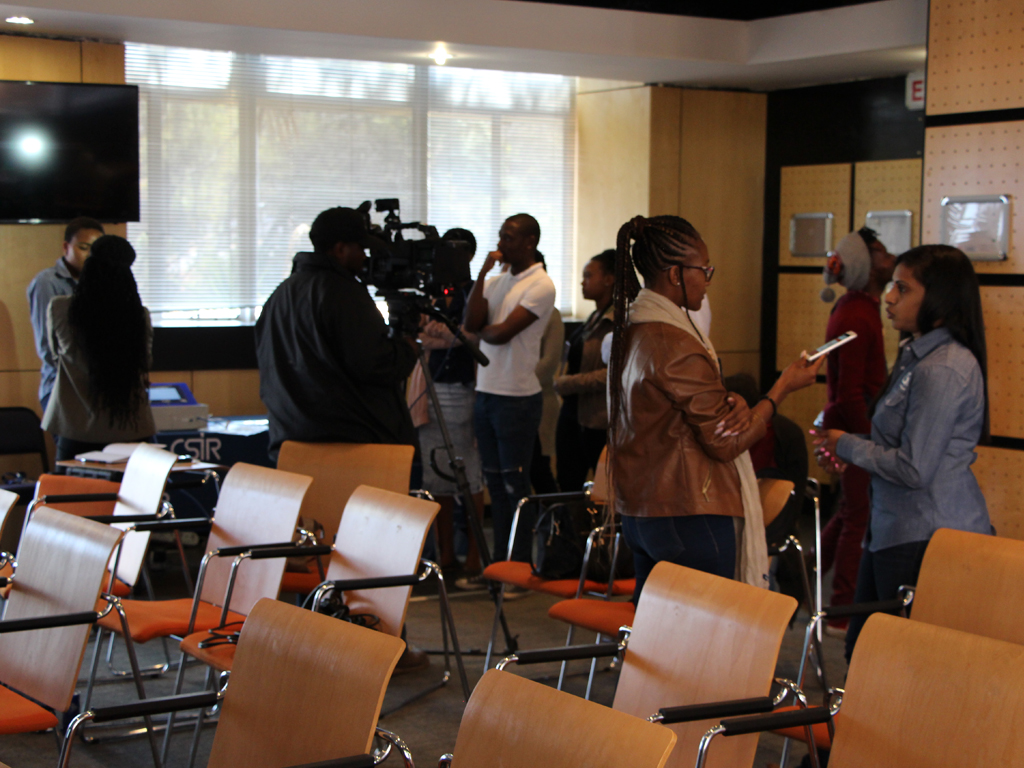CSIR female researchers at the forefront of improving health care in SA
The CSIR has developed a diabetes-detecting chip to monitor blood sugar levels by analysing breath. The breath analyser technology aims to supplement, and eventually replace, the current invasive “finger prick” glucometer for monitoring diabetes in both young and old patients with a completely pain-free solution through a breath analyser based on nanowire sensors.
The breath analyser technology was among some of the technologies displayed at the media briefing held in Pretoria.
Currently, most patients who are diagnosed with diabetes in South Africa have to prick their fingers three times a day to check their sugar levels. This method of monitoring and detecting diabetes is painful for the patient and could potentially introduce infections.
The Council for Scientific and Industrial Research (CSIR) has developed a diabetes-detecting chip to monitor blood sugar levels by analysing breath. The breath analyser technology aims to supplement, and eventually replace, the current invasive “finger prick” glucometer for monitoring diabetes in both young and old patients with a completely pain-free solution through a breath analyser based on nanowire sensors.
The breath analyser technology was among some of the technologies displayed at the media briefing held in Pretoria, 29 August 2018. A few selected female researchers from the CSIR briefed the media on some of the health research being undertaken to improve the country’s health care system.
Speaking at the media briefing, one of the researchers working on this technology, Valentine Saasa, said finger pricking remains one of the most painful methods of monitoring diseases.
“The new solution is non-invasive and hence alleviates pain, as well as opportunistic infections. Many diabetes sufferers would prefer to monitor their sugar levels in a pain-free manner. The new technology is a direct response to these challenges which our citizens face daily. The breath analyser is based on a micro-nano chip composed of nanostructures,” she said.
The CSIR is also working on the safety and development of skin care products. Communities across the world rely on cosmetics for beauty and to protect their skins. South Africa is facing a crisis with illegal products that are damaging the skin of consumers.
Product development technician Vivey Phasha urged consumers to be aware of the ingredients that go into their cosmetic products to ensure the safety and protection of their skin.
“Each cosmetic product must have an ingredients list at the back panel, which then gives information on what has been added to the product. With this information, a consumer will be able to know what goes into their product,” she said.
The research is focused on new product development and thus ensuring safety of the ingredients used in cosmetic products, such as lotions, creams and cleansers.
“Safety, stability, usability and efficacy are some of the most important traits of a good skin product. To ensure this, considerations such as the careful selection of ingredients and clinical testing are a priority in our laboratories,” said Phasha.
Senior researcher, Ghaneshree Moonsamy, shared her research on the development of probiotics for use in the production of broiler chickens, dusky-cob and abalone.
The research will assist the country in the production of natural animal products, free of antibiotics, chemicals and growth stimulants.
Moonsamy said South Africa’s imperatives are still focused on affordable food production, industry and job creation.
“Consumers are demanding naturally produced animal products, free of antibiotics, chemicals and growth stimulants. A key opportunity lays in developing probiotics for the production of both commodity and specialty foods. Unique locally sourced probiotics offer an alternative biological strategy to improve farm productivity by improving digestibility and feed conversion, achieving a higher growth rate, attenuation of disease and improving vigour. This synopsis describes the development, formulation and manufacture of probiotics for use in local animal production,” she said.
Dr Janine Scholefield, a senior researcher in synthetic biology, gave a status update on stem cell research. Dr Scholefield is using induced pluripotent stem cells (iPSC) models to study health issues relevant to Africa, such as those caused by HIV, by looking at people with different susceptibility to the virus, including elite controllers.
This special group of individuals is able to control the viral levels without antiretrovirals; so Scholefield has genetically engineered iPSC-derived blood cells that cannot be infected by HIV. She is also making genetically engineered liver cells with the aim of designing drugs suited to the African population to avoid adverse drug reactions, which are becoming an increasing issue across the continent.
“Brain cells, liver cells, heart cells, white blood cells are a few of the cells that we can genetically engineer using a skin biopsy. Research that focuses on creating stem cells, one African mutation at time, is important, as a model that works in another continent may not work in Africa”, said Dr Scholefied.

ENDS
Issued by:
David Mandaha, CSIR Media Manager
Tel: +12 841 3654 or 072 126 8910.
Follow us on social media:
Twitter: @CSIR. Facebook: CSIRSouthAfrica. Instagram: CSIRSouthAfrica. LinkedIn: Council for Scientific and Industrial Research (CSIR). Youtube: CSIRNewMedia

